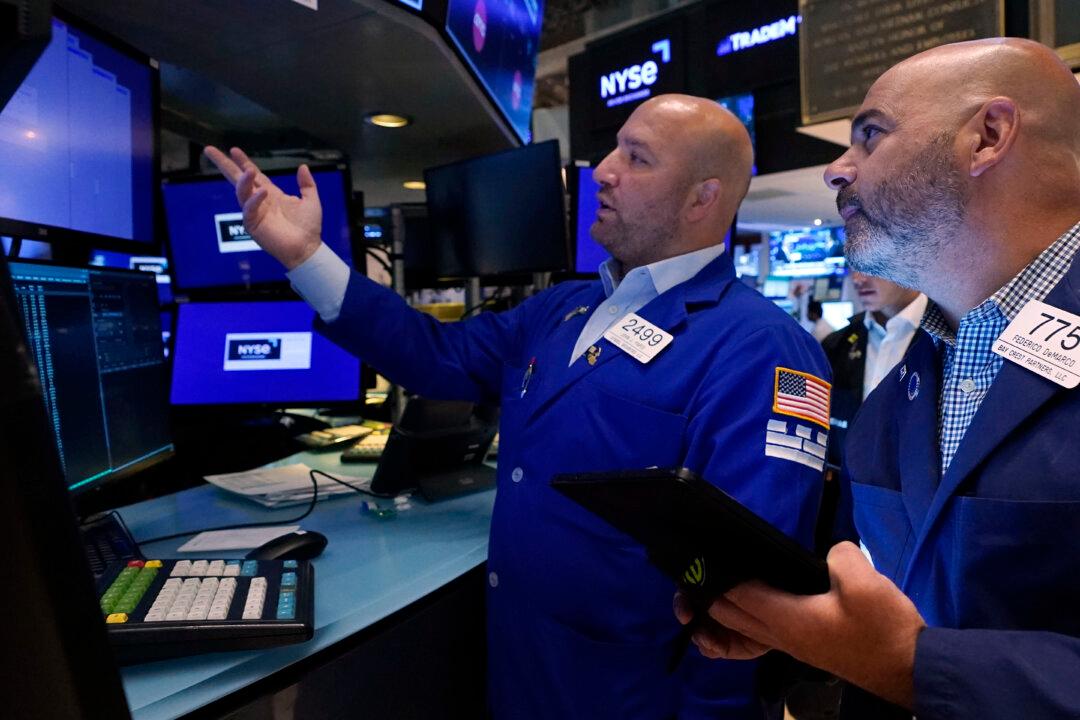NEW YORK—Wall Street is holding relatively steady Friday after a report showed a strong job market is still powering the economy, even if it may be a touch too strong.
The S&P 500 was 0.1 percent higher in early trading but still on track for its first losing week in the last 10. The Dow Jones Industrial Average was down 4 points, or less than 0.1 percent, as of 9:40 a.m. Eastern time, and the Nasdaq composite was 0.1 percent higher.





